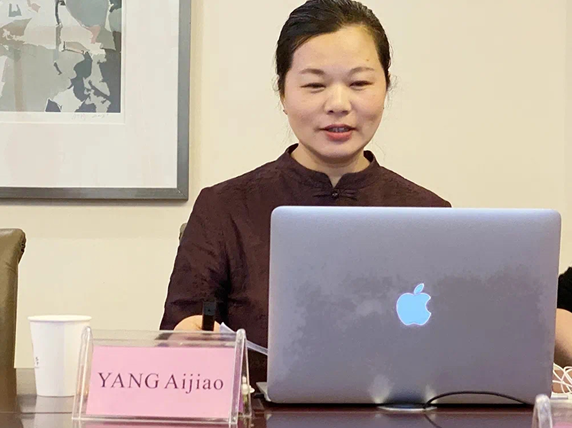On the afternoon of July 30th (UTC+8), the 4th international educational forum “Europe & Asia Didactic Hub” was successfully staged by the Belt and Road Research Institute (Shenzhen) for International Cooperation and Development (BRRI) and the Kazakhstan-based Shakarim State University of Semey (SSUS).
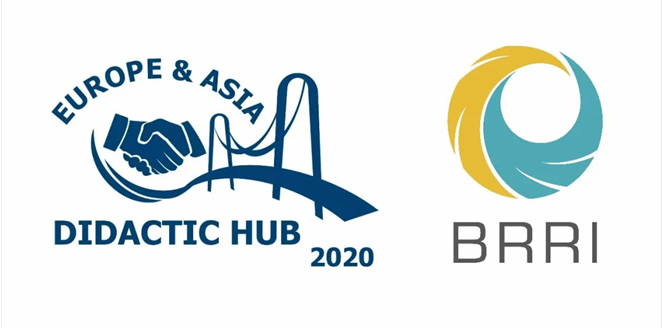
The forum was delivered via online videoconferencing with the topic of “The ‘Belt and Road’ as a New Paradigm of Globalization and the Strategic Role of Universities in the Ecosystem of Special Economic Zones”. Attendees from Shenzhen University (SZU) were Prof. Tao Yitao (director of the China Center for Special Economic Zone Research (CCSEZR), Shenzhen University (SZU), a key research base of humanities and social science under the Ministry of Education, and the president of the BRRI), Prof. Sun Zhongmei (Director in charge of SZU MOOC), Gu Wei (Deputy Dean of College of International Exchange, SZU), Yang Aijiao (Deputy Dean of College of International Exchange, SZU), and Prof. Chen Pei (Head of the English Department of the School of Foreign Languages, SZU, and an expert in English education). They attended the forum together and delivered keynote speeches as important guests. Mr. Dai Dexing, Secretary-General of the Persatuan Muafakat One Belt One Road Association also presented at the forum. Dr. Wang Yanming, the chairman of the “Belt and Road: Russia and Central Asia Trade Alliance” of the BRRI, served as a Chinese-Russian interpreter throughout the forum.
Mr. Adilbayev (Deputy Mayor of Semey, Kazakhstan), Prof. Meir Yeskendirov (Rector of the SSUS), and hundreds of experts and scholars from Switzerland, Poland, Kazakhstan, Russia, India and other countries also attended this forum. All the attendees had some exchanges, mutual learning and sharing on issues such as cross-regional cooperation among countries, distance education and cooperation and exchanges among universities. Prof. Dominique Jordan from Swiss School of Applied Sciences for Economics and Management delivered a keynote speech titled “The Role of Universities as Entrepreneurial Incubators and Their Direct Economic Multiplier Effects on Special Economic Zones”. Prof. Marat Abdikarimov from Kazakhstan-based Shakarim University gave a keynote speech titled “COVID-19: Social Perspectives on the New Reality”. Prof. Pelevin Sergei Lgorevich, Vice President for International Affairs, Armavir State Pedagogical University, had a keynote speech titled “The Challenges and Prospects of the Post-Pandemic Education Markets - Taking Russia as an Example”. Prof. Meir Yeskendirov, Rector of the SSUS, presided over the forum.
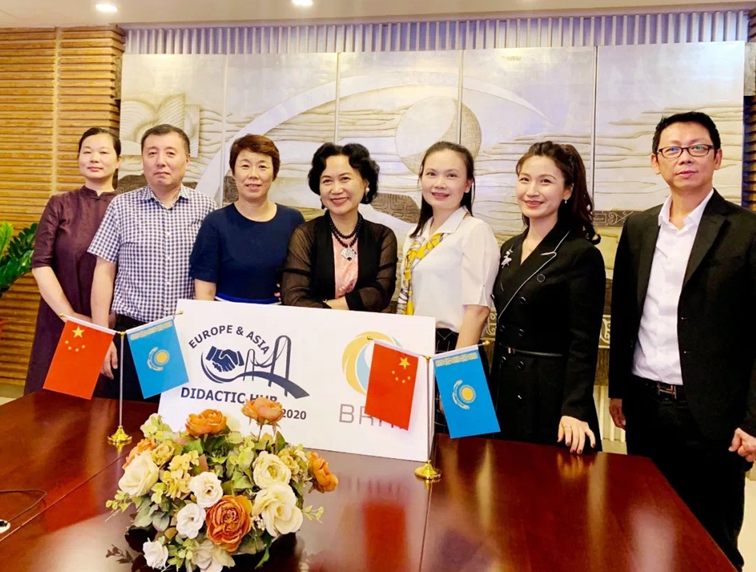 Group photo of all the attendees at the Chinese venue
Group photo of all the attendees at the Chinese venue
Prof. Tao delivered a speech titled “‘State-Led System’ Shows Strength and Charm During COVID-19 Outbreak”. Prof. Tao said that what the China’s exclusive and typical “state-led system” shows in times of large-scale emergencies and nationwide public crisis, the almost unparalleled command-and-control leadership of our powerful social system and mechanism, is worthy of our in-depth exploration and research as the wisdom and wealth that can be shared and learned by the society. The so-called “state-led system” refers to the system and mechanism of government operation and social management, where the country is under the unified leadership of the state, and decrees are distributed directly from central to regional governments with top-down implementations. This kind of social management system and mechanism provide the following: the super strong power of coordination that can pull the scarce resources for something important; the top-down institutional channel with low transaction costs, through which government orders can be implemented smoothly, accurately and quickly; the strong mobilization and convening power when defending against emergencies in a uniform and unified manner; and systematic public appeal that can quickly arouse national sentiment and the lofty moral sense, and may give great spiritual strength instantaneously.
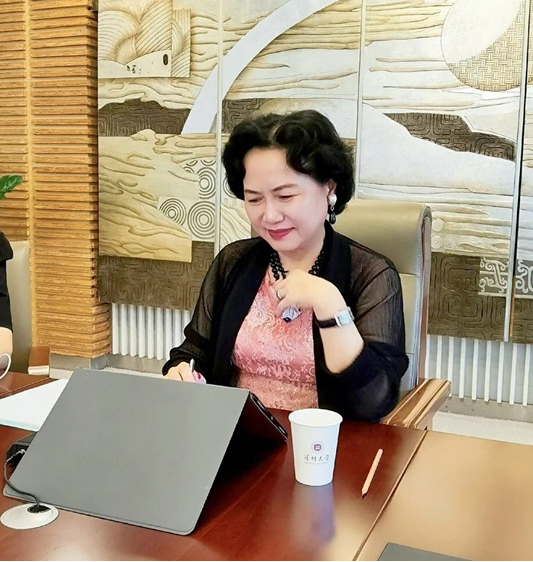 Prof. Tao
Prof. Tao
Prof. Sun delivered a speech titled “Innovation and Practice of Local Universities in Online Education”. From “Exploration of MOOC Courses Held by Local Universities” and “Educational Reform in SZU MOOC Courses”, Prof. Sun fully demonstrated the outstanding achievement of Shenzhen University as the representative of local universities in the online education: the University Open Online Course (UOOC). She said that the UOOC was initiated and set up by SZU on May 12, 2014 after it, as the representative of local universities, kept pace with times, unleashed innovation and studied the common characteristics of local universities and the opportunities and challenges of information technology. The UOOC is intended to serve local colleges and universities and promote the balanced development of higher education. The mission of the UOOC is to share knowledge and course credits, improve educational quality and serve the society. She said that during the COVID-19 outbreak, the UOOC platform provided all the following free services to universities across China: online MOOC educational resources, technical platforms and online teacher training. During the pandemic, the UOOC platform provided course selection services for 627 universities, with total of 3920 courses opened, 32,691 teachers using it, 523,000 students registered, and 1.413 million of people selecting courses on it.
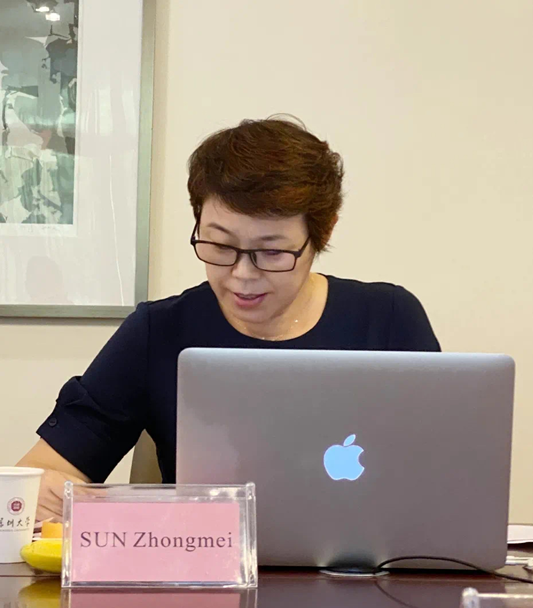 Prof. Sun
Prof. Sun
Deputy Dean Gu delivered a speech titled “Studying in Shenzhen for Overseas Students and Scholarships”. Deputy Dean Gu gave a comprehensive introduction to the overseas study programs in SZU from the following aspects: Shenzhen Profile, SZU’s support policies for international students, SZU’s international cooperation programs, SZU’s doctoral programs and scholarship policies. She said that SZU is making an active effort to encourage “the international talents nurturing, international research cooperation, international faculty development and international cultural exchanges”. At present, SZU has cooperated with more than 300 overseas universities, with over 90 long-term and over 20 short-term exchange programs, and over 50 international cooperation programs.
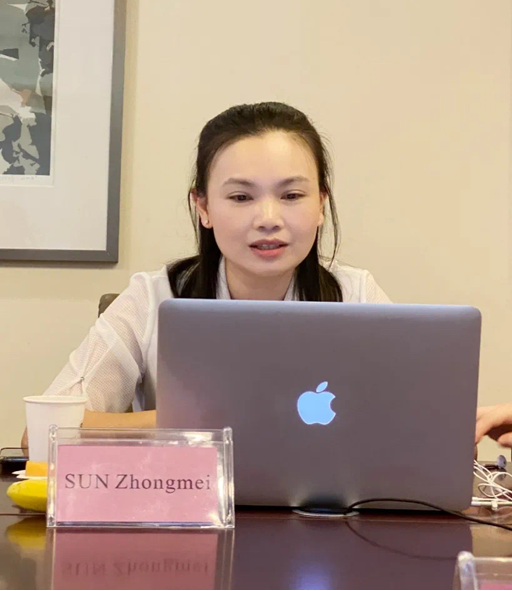 Deputy Dean Gu
Deputy Dean Gu
Prof. Yang delivered a speech titled “Educational Strategies for SZU International Students in Response to the 2020 Pandemic”. Prof. Yang enumerated eight educational strategies for SZU international students in response to the pandemic: 1. During the COVID-19 outbreak, set up a teaching team to supervise the teaching work; 2. Release teaching information in a timely manner and establish an effective communication mechanism; 3. Carefully select the teaching platform, and upgrade the online teaching software “ZOOM” if necessary at teacher’s own expenses to achieve functional upgrades; 4. Carry out teacher-student online training to improve the educational quality; 5. Provide free courses to attract international students; 6. Listen to and assess the lectures to improve teaching quality; 7. Adjust teaching strategies in a timely manner based on the survey of overseas students; 8. Improve teaching quality through technology means.
Prof. Yang
Prof. Chen delivered a speech titled “Providing an Efficient and Collaborative Class During COVID-19: Taking an Online OBTL Course for SZU English Education Students as an Example”. Prof. Chen had a vivid introduction about her teaching case that had won the first prize of the 2020 Online Teaching Case Award for Universities in Guangdong. She said that the case adopted the outcome-based teaching and learning (OBTL) theoretical framework and innovated in the following 7 points: 1. It combined the teaching theory with online practice. 2. It adopted a student-centered and teacher-facilitated cooperative learning strategy, which aimed to motivate the learning, and can effectively make up for the deficiency of online teaching that students are prone to be distracted. 3. 4. Students were encouraged to make use of online teaching resources (micro videos, network links, prize-winning teaching videos, etc.) for micro-course practice, and were required to combine theory with practice. 5. Multi-dimensional evaluation was adopted to cover the whole teaching process. 6. It guided students to mobilize online resources for extracurricular self-study to deepen their understanding of theoretical knowledge. 7. The success of this case proved that effective cooperation and interaction between teachers and students and practice organization can also be achieved by online teaching.
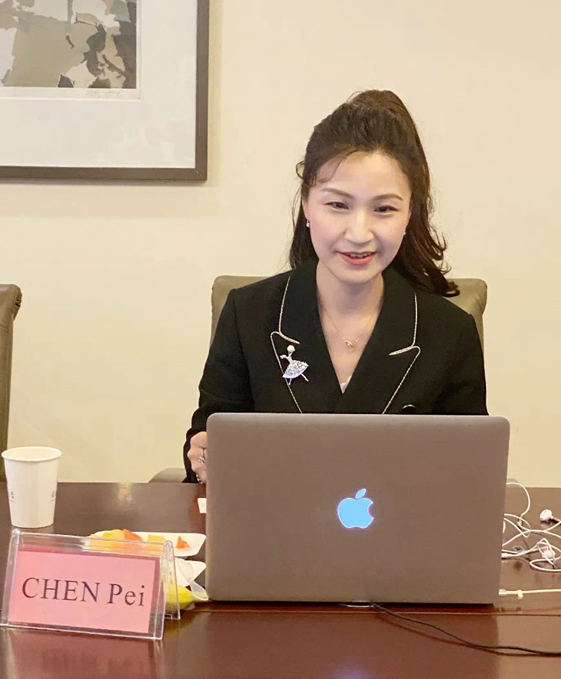 Prof. Chen
Prof. Chen
The speeches of the professors from SZU won loud applause from all the guests. Rector Meir Yeskendirov spoke highly of the professors. Against the backdrop of the pandemic, this forum kept in line with the times and focused on the international perspectives, the demands of different countries and social realities. It offered an opportunity to learn about the current situations of various countries and regions in an all-round and multi-dimensional manner, and was of profound significance for promoting global cooperation and exchanges. Besides, it gave an interpretation of the “Belt and Road” initiative and the community with a shared future for mankind from the perspective of transnational education.
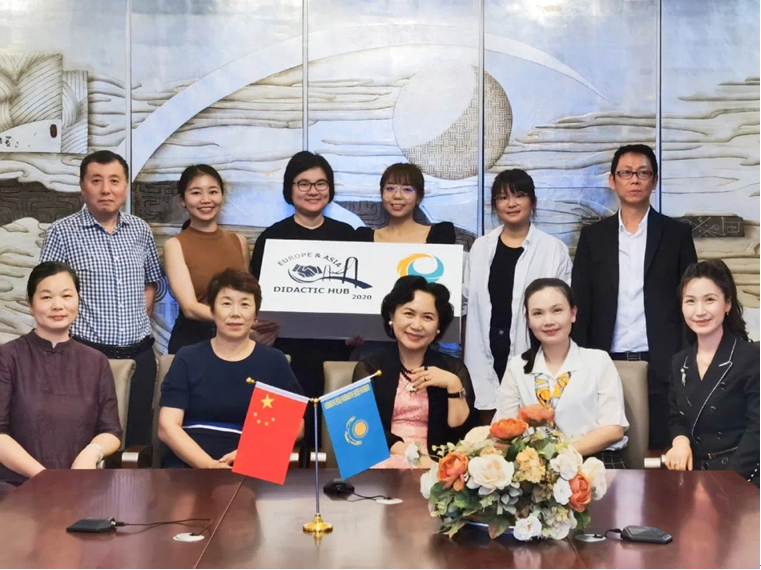 Group photo of the professors and all the staff
Group photo of the professors and all the staff
It’s known that the international educational forum “Europe & Asia Didactic Hub” is an international academic meeting on education that is held annually to explore and share global education philosophies against the backdrop of globalization, promote cross-national exchanges on educational thoughts and practices, and ultimately facilitate win-win cooperation between countries in education. Last year, the BRRI attended the third Europe & Asia Didactic Hub forum as one of the chair’s organizations. Other attendees were experts and scholars from Switzerland, Poland, Ukraine, Jordan, Russia, South Korea and other countries.





